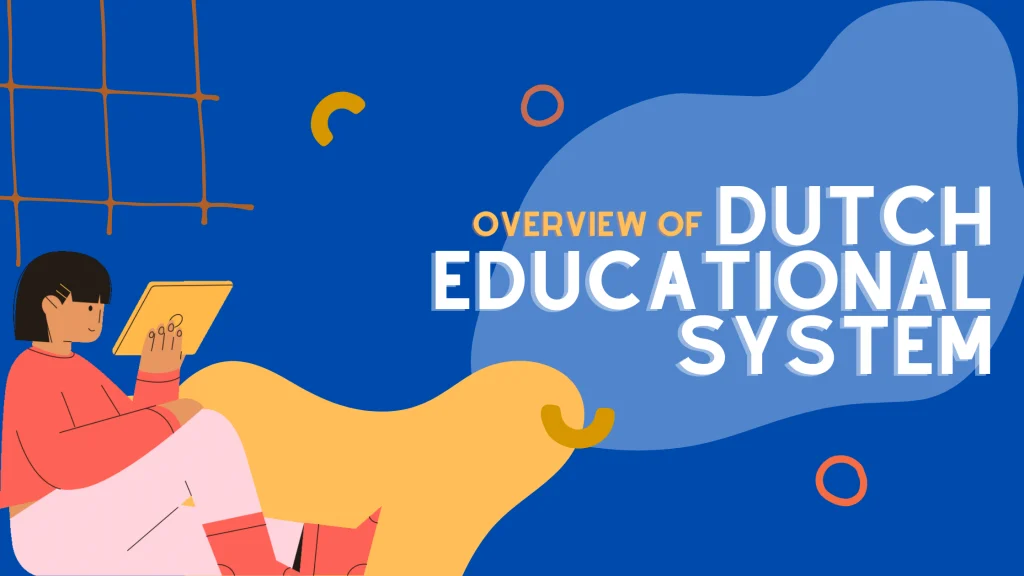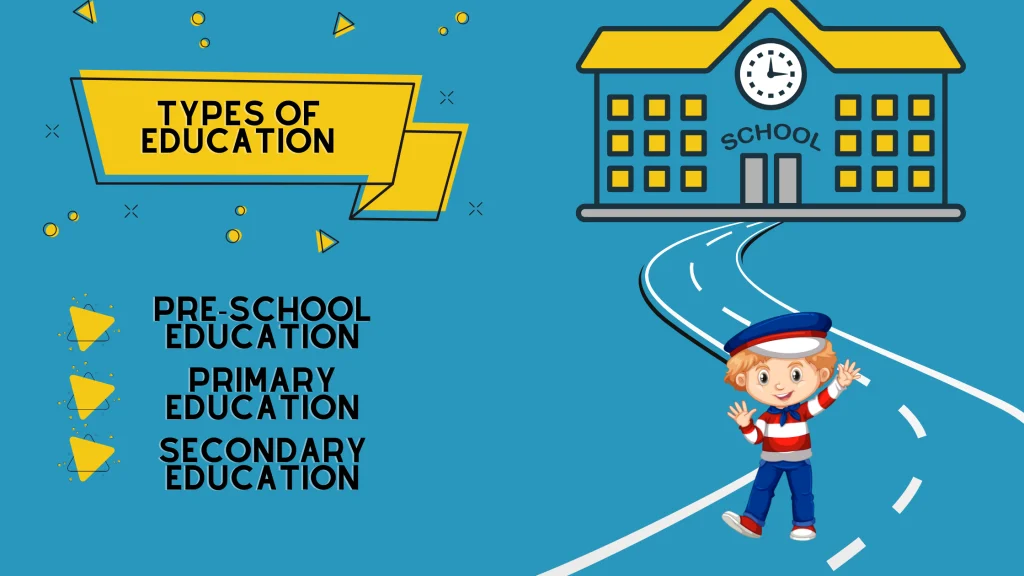The Netherlands is well-known for being one of the best destinations for studying abroad. The country provides its students with one of the most diversely enriching experiences with an internationally oriented educational system. Opportunities to learn, share knowledge and develop your personality are abundant in the Netherlands. Furthermore, the Dutch educational system focuses on teamwork, curating an ideal environment to make friends.

Education is no longer just for personal development but also provides you with the skills to survive in our multicultural society. Let’s discover how the Netherlands has one of the most inclusive, forward-thinking education systems in the world,
Pre-school education.
Pre-school education sure is pretty critical for a child. It helps the child to be prepared for school at the right age. You can either enroll the child in a pre-school or daycare or a combination of both. The child needs to be aged between 10 weeks and four years old.
Most people prefer pre-school (voorschool) over daycare because it is more systematic and helps the children to prepare for further education. To learn more, keep reading:
- In most cities, pre-school is started when the child is two years old.
- The service offered will be for 15 hours per week. The hours will be spread out over the course of three days.
- The main focus of the pre-schools is on helping children learn the Dutch language and develop motor and social skills.
- Pre-schools are connected to some primary schools but are run by different organizations. But some pre-schools in the Netherlands do not provide automatic access to primary schools.
- The parents can apply for a tax rebate if one or neither of the parents are working. They can get a subsidy on the cost they pay for pre-school. It is a policy because working parents get a tax rebate on the price they pay for daycare.
Primary education
Most children start primary school as soon as they turn four years old. There are eight grades in primary school, so by the time children are 12, they would have completed their primary schooling. There are two types of primary schools. They are “openbare” and “bijzondere”. First, the government set the openbare schools, run and funded by independent foundations and non-religious ones. The second option, i.e., bijzondere, often follows specific principles and religion. Two-thirds of the population attend special (bijzondere) school, and these special schools are open to any kind of religion most of the time.
Essential aspects concerning primary schools.
- Several education policies: Every school in the Netherlands is based on its philosophy. So, it is crucial to understand those philosophies and then enroll the child in the school. So, ultimately, the decision depends on the parents.
- School opening hours: Schools can decide their working hours. But, usually, the timings vary from 8:30/8:45 to 3:00/3:15. There is a lunch break of an hour or 45 minutes, so children can either go home or eat at school. If the children decide to have their lunch at school, parents will have to pay an extra fee and bring their lunch. At the same time, some schools have a continuous schedule. The lunch break is short in that schedule, and children have lunch in the classroom with their teacher. On Wednesdays, the school is open until 12:30. After that, the children are allowed to go home or to the BSO centers.
- Bilingual schools: Usually, Dutch schools are obliged to teach English to children once they are in grade 7. Many schools have started teaching the language earlier and sometimes from grade 1. The bilingual schools in the Netherlands are Dutch schools, but they teach the English language with the Dutch language in the curriculum. The tests are taken in Dutch, though.
- Testing and monitoring students: Twice a year, the pupils of groups 2 and 3 take a test. These tests are for checking the children’s progress, and the results are informed to the parents only. These tests can also help parents and teachers to track the progress of the child.
- Grades and reports: Generally, schools hand out the reports twice a year. The grades can range from “very good” to “insufficient.” The teachers hold a ten-minute meeting and invite the parents to discuss the grades of their children. At the end of grade 8, the teachers assess the grades and help them decide what type of secondary education will be best for them.
Secondary education
Secondary education consists of three levels. They include,
- A VMBO typically lasts for four years
- The duration of HAVO is 5 years
- The duration of VWO lasts for 6 years
The vocational and higher education
There are three educational routes when we talk about higher education in the Netherlands. These are:
- Middle-level applied education (MBO): MBO is equivalent to a junior college education. It is designed to prepare learners for either technical occupations or skilled trades. This type of education is also for supporting roles in different professions. They are,
- Engineering
- Accountancy
- Nursing
- Medicine
- Architecture
- Criminology
- Business administration
One can pursue these professions or go for additional education with advanced academic material at another college.
- Higher professional education (HBO): It is the equivalent of a college degree and has a professional orientation. A total of forty vocational universities (hogescholen) in the Netherlands offer this type of education. HBO institutions are also known as universities of the applied sciences. The programs at such universities help students to be more practical-oriented. HBO graduates can receive two titles, namely Baccalaureus (bc.) and Ingenieur (ing.).
- Scientific education (WO): It is equivalent to a university degree and has an academic orientation. This institution offers many more bachelor’s and master’s degrees. The Bachelor’s degrees are Bachelor of Science (BSc), Bachelor of Arts (BA), and Bachelor of Laws (LLB). Master’s degrees offered by WO are Master of Science (MSc), Master of Arts (MA), and Master of Laws (LLM).
Support for expat students
If you have just moved to the Netherlands and plan to stay there for longer, your children will also attend Dutch schools. The children will be new to the Dutch language, so they will have to take classes with specialized teachers to learn the language. This takes a year, and then they can be promoted to the next grade with other students.
School’s fee and contributions
Education in the majority of Dutch schools is free of cost. Most schools get their funds from the Ministry of Education, Culture, and Science. As a result, the ministry controls standards, objectives, and targets that the school needs to ensure or fulfill. However, some schools might ask for a voluntary fee to arrange funds for activities like trips, celebrations of festivals, maintaining gardens, or hiring a new art teacher.
Municipalities come to their rescue for those parents who are incapable of affording a voluntary contribution to the government schools. The municipality also helps them related to other costs and after school activities for the kids. Many companies pay for international education for the children of their employees. If not that, the fee is tax-deductible. So, it is a good thing to get prior information about this.
School holidays
Holidays for primary and secondary schools are set nationally. Holidays in the summer period are approximately six weeks. Also, during education, there is at least one week of holiday after six weeks. This is done for the welfare of both teachers and students. It allows them to relax and come back with more energy.
Conclusion
After taking a look at the Dutch education system, you must have got to know many perks. It is not just internationally recognized degrees and innovative teaching methods that attract people. So many things are great when it comes to getting your education in the Netherlands. We hope our information helped get you an insight into this great education system.



